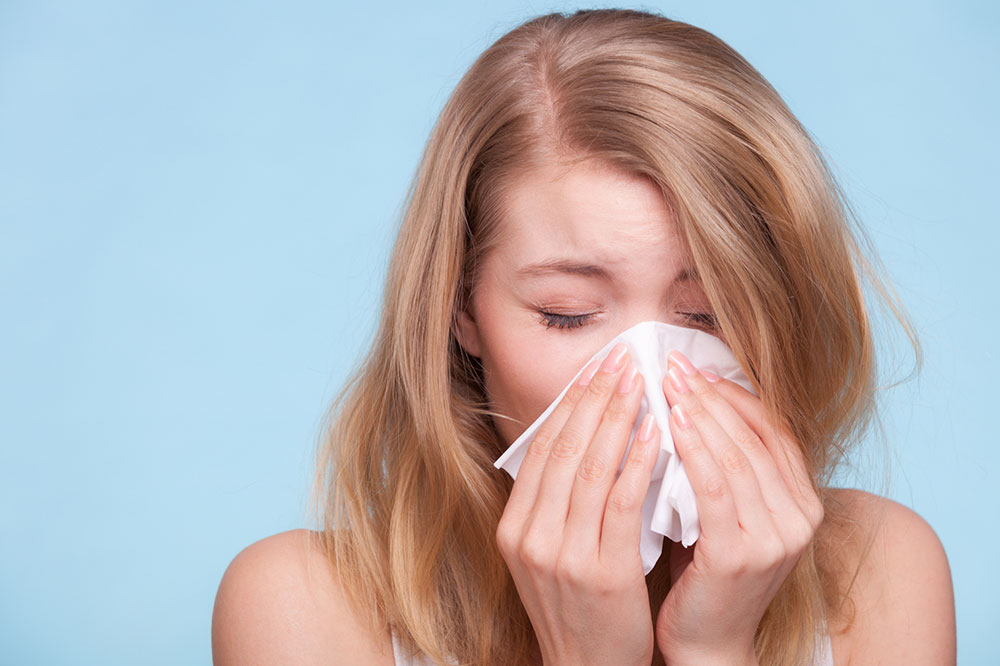
Remedies and treatments for various allergic symptoms
Our body instantaneously responds to contact with any foreign substance. Such a response by the immune system to any foreign body that is not typically harmful is commonly referred to as an allergy or allergic reaction. Some of these foreign substances may include certain foods, pollen, and pet dander. Depending on the symptoms of allergic reactions, the allergy treatments can vary.
Causes
Why the immune system causes an allergic reaction to any foreign substance that is otherwise harmless is yet to be confirmed. Some of the common and known allergens which can cause allergic reactions include
- Foods such as wheat, nuts, milk, shellfish, and eggs.
- Animal products such as pet dander, dust mite waste, and cockroaches
- Some medications, like penicillin, are known to trigger allergic reactions
- Insect stings of bees, wasps, and mosquitoes
- Molds such as airborne spores from mold can trigger allergic reactions
- Pollens from grass, weeds, and trees and resin from plants like poison ivy and poison oak
- The latex used to make gloves and condoms
- Metals like nickel
A noteworthy factor to consider is that allergies have a genetic component as well. Due to this, allergic reactions can also be hereditary. However, it’s limited to general susceptibility and specific allergies cannot be passed down. In some cases, allergic reactions are seasonal too. Hay fever is one such example, which is usually caused by various plant-based pollens and leads to itchy and watery eyes, a runny nose, and coughing.
Symptoms
The symptoms of allergic reactions depend on various factors. Some of these factors include the type of allergy you have and how severe it is. Most food allergies are likely to trigger swelling, hives, nausea, and fatigue. If the allergy is seasonal, it’s likely to mimic the symptoms of a cold, which can be similar to hay fever. Some of such symptoms include congestion, runny nose, and swollen eyes. If an allergic reaction becomes severe, it can sometimes lead to anaphylaxis. Anaphylaxis is a life-threatening emergency. It can result in various complications such as breathing difficulties, lightheadedness, and loss of consciousness. Sometimes, skin allergies are also a result of a response to certain allergens. Such allergens can be food, chemical, and even pollen anything. Some of the commonly known skin allergies include
- Rashes
Certain areas of skin can develop rashes, which become red or swollen. Rashes can be painful or itchy and irritating. - Eczema
If certain patches of skin become inflamed, it is known as eczema. It can be itchy and can bleed too. - Contact dermatitis refers to the condition of red, itchy patches of skin. These patches develop almost immediately after contact with an allergen.
Diagnosis and treatment
Depending on the sign and symptoms of allergic reactions, your doctor may take several steps to confirm an allergic reaction. The diagnosis procedure includes a physical examination, a simple questionnaire Q & A, and a skin and blood test.
Allergy treatment procedure varies based on allergen type and its signs and symptoms.
- Medication
Sometimes various over the counter medication helps. However, it is always suggested to follow the doctor’s recommendation only. - Immunotherapy
In certain cases, doctors are likely to prescribe immunotherapy too. It’s primarily a course of injection which helps your body to get familiar with certain allergic reactions. - Emergency epinephrine
In the event of a life-threatening allergic reaction, the doctor prescribes emergency epinephrine shots until the required medical help arrives
Natural remedies and preventions
Several natural remedies are available which can be used for allergy treatments as well as prevention. Dried teas, various essential oils such as peppermint, eucalyptus, and frankincense are great for allergic reactions.
Allergic reactions cannot be prevented completely. However, identifying and staying away from the known allergens as well as triggers can help to prevent reoccurrence to a certain extent.




